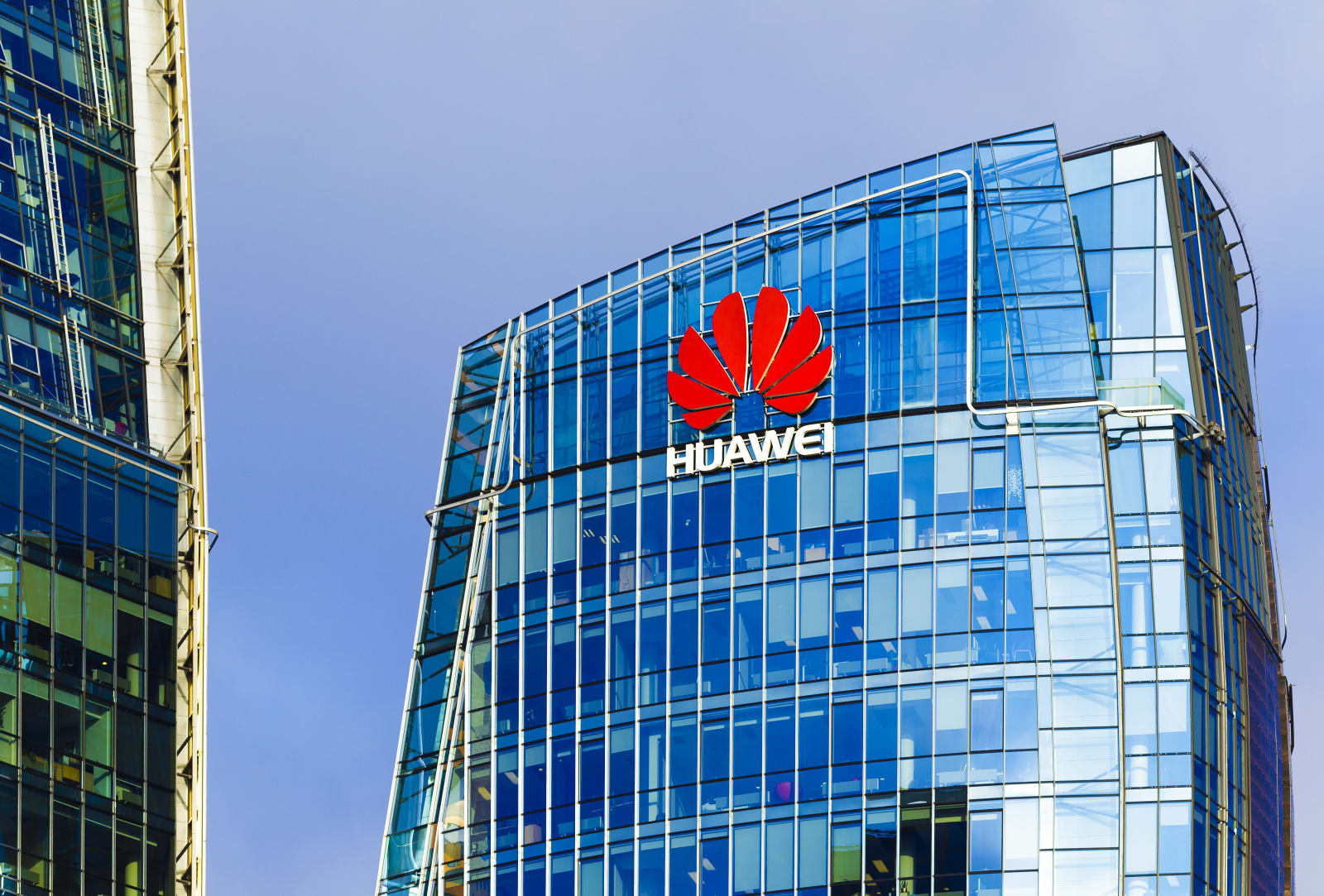Posts Tagged: sues
Utah sues TikTok over child safety issues and its links to China
Utah has sued TikTok over child safety issues and the company’s China-based ownership, CNBC has reported. In the complaint, attorney general Sean Reyes called the app “an addictive product” and accused it of misleading users about its relationship with China-based parent company ByteDance. The state recently enacted some of the strictest social media laws in the country, requiring parental permission for teens to use social media.
The lawsuit compares TikTok to a slot machine that provides “dopamine manipulation” trigged by swiping up on videos. That addictive nature is particularly harmful for the “not-yet-fully-developed” brain of young users and can create a dependence on the app, the state claims. It noted that the US Surgeon General has warned about mental health harms around social media, and cited excessive TikTok usage based around the company’s own (redacted) figures.
“What these children (and their parents) do not know is that TikTok is lying to them about the safety of its app and exploiting them into checking and watching the app compulsively, no matter the terrible effects it has on their mental health, their physical development, their family, and their social life,” the complaint states.
The lawsuit also delves into TikTok’s links to China. “To avoid scrutiny from its users (and regulators), TikTok has also misled Utah consumers about the degree to which TikTok remains enmeshed with and under the control of ByteDance, it’s China-based parent company.”
TikTok previously said that it has dedicated more than $ 1.5 billion on data security, and has rejected allegations that it’s spying for the Chinese government. The company also recently opened a Transparency and Accountability Center in an effort to fend off regulators and potential bans.
The federal government has yet to take any concrete action against social media platforms, but states have been more active. Utah recently passed a law requiring parents to get permission before teens can create accounts on TikTok, Snap and other platforms. It also mandates curfew, parental controls and age verification features. The state didn’t go as far as Montana, however, which outright banned the use of TikTok. Tomorrow, a judge will hear arguments in TikTok’s lawsuit seeking to overturn that ban — a case that could open the company up to more scrutiny and set precedent around the US.
This article originally appeared on Engadget at https://www.engadget.com/utah-sues-tiktok-over-child-safety-issues-and-its-links-to-china-085516390.html?src=rss
Engadget is a web magazine with obsessive daily coverage of everything new in gadgets and consumer electronics
Getty Images sues the maker of AI art generator Stable Diffusion over data scraping allegations
Last September Getty Images banned the inclusion of AI-generated works in its commercial database over copyright concerns. On Tuesday, Getty Images announced that it is suing Stability AI, maker of the popular AI art tool Stable Diffusion, in a London court over alleged copyright violations.
"It is Getty Images’ position that Stability AI unlawfully copied and processed millions of images protected by copyright and the associated metadata owned or represented by Getty Images absent a license to benefit Stability AI’s commercial interests and to the detriment of the content creators," Getty Images wrote in a press statement released Tuesday. "Getty Images believes artificial intelligence has the potential to stimulate creative endeavors."
"Getty Images provided licenses to leading technology innovators for purposes related to training artificial intelligence systems in a manner that respects personal and intellectual property rights," the company continued. "Stability AI did not seek any such license from Getty Images and instead, we believe, chose to ignore viable licensing options and long‑standing legal protections in pursuit of their stand‑alone commercial interests."
The details of the lawsuit have not been made public, though Getty Images CEO Craig Peters told The Verge, that charges would include copyright and site TOS violations like web scraping. Furthermore, Peters explained that the company is not seeking monetary damages in this case so as much as it is hoping to establish a favorable precedent for future litigation.
Text-to-image generation tools like Stable Diffusion, Dall-E and Midjourney don't create the artwork that they produce in the same way people do — there is no imagination from which these ideas can spring forth. Like other generative AI, these tools are trained to do what they do using massive databases of annotated images — think, hundreds of thousands of frog pictures labelled "frog" used to teach a computer algorithm what a frog looks like.
And why go through the trouble of assembling and annotating a database of your own when there's an entire internet's worth of content there for the taking? AI firms like Clearview and Voyager Labs have already tried and been massively, repeatedly fined for scraping image data from the public web and social media sites. An independent study conducted last August concluded that a notable portion of Stable Diffusion's data was likely pulled directly from the Getty Images site, in part as evidenced by the art tool's habit of recreating the Getty watermark.
FTC sues to block Microsoft’s Activision Blizzard merger
The Federal Trade Commission has filed an antitrust complaint in a bid to block Microsoft's planned $ 68.7 billion takeover of Activision Blizzard. The FTC started looking into the deal and its potential impact on the video game market soon after it was announced in January. Evidently, the agency was concerned enough to try and pump the brakes on the buyout. The FTC said that, were the deal to go through, it "would enable Microsoft to suppress competitors to its Xbox gaming consoles and its rapidly growing subscription content and cloud-gaming business."
“Microsoft has already shown that it can and will withhold content from its gaming rivals,” Holly Vedova, director of the FTC’s Bureau of Competition, said in a press release. “Today, we seek to stop Microsoft from gaining control over a leading independent game studio and using it to harm competition in multiple dynamic and fast-growing gaming markets.”
The FTC's commissioners voted in favor of the lawsuit along party lines, with the three Democratic members approving it. The lone Republican Commissioner Christine S. Wilson voted against the suit in a closed-door meeting.
"The FTC pointed to Microsoft’s record of acquiring and using valuable gaming content to suppress competition from rival consoles, including its acquisition of ZeniMax, parent company of Bethesda Softworks (a well-known game developer)," the agency said in a press release. "Microsoft decided to make several of Bethesda's titles including Starfield and Redfall Microsoft exclusives despite assurances it had given to European antitrust authorities that it had no incentive to withhold games from rival consoles."
While the lawsuit doesn't necessarily kill the deal, it's unlikely to be resolved by July, as Politico, which had reported that an FTC bid to block the merger was likely, recently noted. That was the deadline Microsoft and Activision set for closing the deal. If the acquisition hasn't closed by then, the companies will have to renegotiate the agreement or even walk away from the merger. Regulators in other jurisdictions have been taking a close look at the deal, including in the UK and the European Union (which should complete its investigation by late March).
Sony is the merger's most prominent opponent. It has expressed concern that Microsoft would make games such as Call of Duty exclusive to Xbox platforms, which could cost Sony hundreds of millions of dollars a year. However, Microsoft has said it wants to keep Call of Duty on PlayStation and it claims to have offered Sony a 10-year agreement to that effect.
Just ahead of the FTC's vote, Microsoft said it struck a deal with Nintendo to bring Call of Duty games to the company's systems if the merger closes. Call of Duty will also remain on Steam as part of a separate pact with Valve.
Microsoft and Activision have been downplaying the significance of the deal in an attempt to appease regulators and push it through. For one thing, Microsoft has claimed that Sony has more exclusive games, "many of which are better quality," in a filing with the UK's Competition and Markets Authority (CMA). It also said Activision Blizzard doesn't have any "must-have" games, despite having some of the most popular titles in the world (including Call of Duty: Modern Warfare II, Overwatch 2 and World of Warcraft) under its umbrella.
The FTC refuted those suggestions in its complaint. The agency claimed that Activision is "one of only a very small number of top video game developers in the world that create and publish high-quality video games for multiple devices." It noted that between franchises such as Call of Duty, World of Warcraft, Diablo, and Overwatch, Activision has more than 154 million monthly active users.
Microsoft has suggested that the acquisition the deal is more about gaining a foothold in the mobile gaming market, where Activision's King division is a major player. For instance, Candy Crush Saga has had more than 3 billion downloads.
Ultimately, the FTC believes that the merger would likely harm competition in the video game market. "With control over Activision’s blockbuster franchises, Microsoft would have both the means and motive to harm competition by manipulating Activision’s pricing, degrading Activision’s game quality or player experience on rival consoles and gaming services, changing the terms and timing of access to Activision’s content, or withholding content from competitors entirely, resulting in harm to consumers," the agency said.
Noting that the FTC is suing to block the merger, Activision Blizzard CEO Bobby Kotick wrote in a note to employees that "This sounds alarming, so I want to reinforce my confidence that this deal will close. The allegation that this deal is anti-competitive doesn't align with the facts, and we believe we’ll win this challenge."
Kotick added that "a combined Microsoft-[Activision Blizzard King] will be good for players, good for employees, good for competition and good for the industry. Our players want choice, and this gives them exactly that."
"We continue to believe that our deal to acquire Activision Blizzard will expand competition and create more opportunities for gamers and game developers," Microsoft president Brad Smith wrote on Twitter. "We have been committed since Day One to addressing competition concerns, including by offering earlier this week proposed concessions to the FTC. While we believe in giving peace a chance, we have complete confidence in our case and welcome the opportunity to present it in court."
We have been committed since Day One to addressing competition concerns, including by offering earlier this week proposed concessions to the FTC. While we believe in giving peace a chance, we have complete confidence in our case and welcome the opportunity to present it in court.
— Brad Smith (@BradSmi) December 8, 2022
Update 12/8 2:58PM ET: Added comments from Bobby Kotick and Brad Smith.
Bungie sues ‘Destiny 2’ YouTuber who issued almost 100 fake DMCA claims
In December of last year, a YouTuber by the name of Lord Nazo received copyright takedown notices from CSC Global — the brand protection vendor contracted by game creator Bungie — for uploading tracks from their game Destiny 2's original soundtrack. While some content creators might remove the offending material or appeal the copyright notice, Nazo, whose real name is Nicholas Minor, allegedly made the ill-fated decision to impersonate CSC Global and issue dozens of fake DMCA notices to his fellow creators. As first spotted by The Game Post, Bungie is now suing him for a whopping $ 7.6 million.
“Ninety-six times, Minor sent DMCA takedown notices purportedly on behalf of Bungie, identifying himself as Bungie’s 'Brand Protection' vendor in order to have YouTube instruct innocent creators to delete their Destiny 2 videos or face copyright strikes," the lawsuit claims, "disrupting Bungie’s community of players, streamers, and fans. And all the while, 'Lord Nazo' was taking part in the community discussion of 'Bungie’s' takedowns." Bungie is seeking “damages and injunctive relief” that include $ 150,000 for each fraudulent copyright claim: a total penalty of $ 7,650,000, not including attorney’s fees.
The game developer is also accusing Minor of using one of his fake email aliases to send harassing emails to the actual CSC Global with the subject lines such as “You’re in for it now” and “Better start running. The clock is ticking.” Minor also allegedly authored a "manifesto" that he sent to other members of the Destiny 2 community — again, under an email alias — in which he "took credit" for some of his activities. The recipients promptly forwarded the email to Bungie.
As detailed in the lawsuit, Minor appears to have done the bare minimum to cover his tracks: the first batch of fake DMCA notices used the same residential IP address he used to log-in to both his Destiny and Destiny 2 accounts, the latter of which shared the same Lord Nazo username as his YouTube, Twitter and Reddit accounts. He only switched to a VPN on March 27th — following media coverage of the fake DMCA notices. Meanwhile, Minor allegedly continued to log-in to his Destiny account under his original IP address until May.
Florida pension fund sues Elon Musk over Twitter deal
Elon Musk's $ 44 billion buyout of Twitter is facing its first legal challenge. A Florida pension fund is suing Musk and Twitter, arguing that the deal can't legally close until 2025 due to the billionaire's stake in the platform. The proposed class-action lawsuit — filed today by the Orlando Police Pension Fund in the Delaware Chancery court— also declares that Twitter’s board of directors breached its fiduciary duties by allowing the deal to go through. In addition to Musk and Twitter, the lawsuit also named former Twitter CEO Jack Dorsey, current Twitter CEO Parag Agrawal and the company’s board as defendants.
In a message to Engadget, Tulane Law School’s Professor Ann M. Lipton says the lawsuit raises "some very novel issues" under Delaware corporate law. Under a law known as Section 203, shareholders who own more than 15 percent of the company can’t enter a merger without two-thirds of the remaining shares granting approval. Without this approval, the merger can’t be finalized for another three years.
The fund’s lawyers state that Musk initially owned roughly 10 percent of Twitter’s shares, which would seemingly not make Section 203 applicable. But, the fund argues, Musk formed a pact with Morgan Stanley (which owns 8.8 percent of shares) and former CEO Jack Dorsey (who has 2.4 percent) to advance the deal. The combined stake of these parties allegedly makes Musk and his allies in the takeover deal an "interested shareholder" under Section 203 — which, if the court agrees with the underlying reasoning presented in the case, means the merger must either be delayed or get approval shareholders representing at least two-thirds of the company's ownership.
“Section 203 is not often litigated, and so the issue of whether Musk's relationship with these parties actually counts for statutory purposes is an unsettled question and it will be interesting to watch how it unfolds,” wrote Lipton.
More details of Musk’s highly complex $ 44 billion buyout of Twitter have been made public since the social media platform accepted the billionaire’s offer last month. The New York Times reported that Musk promised investors returns of nearly five to ten times their investments if the deal went through. Parts of the deal are being scrutinized, including its reliance on foreign investors and whether Musk bought shares in the company specifically to influence its leadership. But antitrust experts say the merger is unlikely to be blocked by the FTC. The agency will decide in the next month whether to quickly approve the merger or launch a lengthier investigation.
Waymo sues to keep autonomous vehicle emergency protocols secret
Waymo has sued the California Department of Motor Vehicles. In a case first reported by The Los Angeles Times, the Alphabet subsidiary filed a complaint with the Sacramento County Superior Court on January 21st to prevent the agency from disclosing what it believes to be trade secrets.
At the center of the lawsuit is a public records request an unidentified party made to obtain Waymo’s driverless deployment application. Before sharing the requested documents, the DMV allowed the company to redact any sections it believed would reveal its trade secrets, including questions that were asked by the agency. When the DMV eventually forwarded the package to the requester, that individual or group challenged the redactions. The agency then contacted Waymo and invited the company to sue it to resolve the matter.
Some of the information Waymo wants to prevent from entering the public domain include details on how it plans to handle emergencies involving its autonomous vehicles. Another redacted section details the abilities of its Driver software to handle San Francisco’s tricky one-way streets and hills. The company began offering taxi service to a limited number of customers in San Francisco in August. Those vehicles operate with a backup human driver.
The company contends it has publicly shared almost all of the information contained in its application with the DMV. According to Waymo, the redactions involve technical details that touch on how it achieves the safety performance it has detailed in other public venues. Waymo claims that information could give a competitor an edge on it. The suit's purpose here is to either forestall or completely prevent the disclosure of the requested information. As TheLos Angeles Times notes, resolution for these types of cases can take years.
“Every autonomous vehicle company has an obligation to demonstrate the safety of its technology, which is why we’ve transparently and consistently shared data on our safety readiness with the public,” a spokesperson for Waymo told Engadget. “We will continue to work with the DMV to determine what is appropriate for us to share publicly and hope to find a resolution soon.”
The DMV declined to comment on the case, but said it's currently reviewing the complaint.
Sonos sues Google for infringing on five more speaker patents
Just one day before Google's Pixel 5 reveal, Sonos has filed a new lawsuit against the search giant, alleging it has infringed five more patents. The patents cover technologies that form the basis of some of Sonos' best-known features, including its…
Engadget RSS Feed
Steve Wozniak sues Google for not acting on YouTube Bitcoin scams
Steve Wozniak has filed a lawsuit against YouTube, saying the site has repeatedly ignored his requests to take down phony bitcoin giveaways that use his name. He compared YouTube’s actions to Twitter, which quickly removed similar scams after Wozniak…
Engadget RSS Feed
Huawei sues Verizon after patent talks break down

Engadget RSS Feed
Washington, DC sues DoorDash for allegedly misleading users about tips

Engadget RSS Feed
News anchor sues Facebook, Reddit after creepy photo appears in ads

Engadget RSS Feed
Woody Allen sues Amazon for backing out of film deals

Engadget RSS Feed
Bumble sues Tinder’s owners for stealing company secrets

Engadget RSS Feed


‘Fortnite’ studio Epic Games sues two alleged cheaters
 Earlier this week, Fortnite publisher Epic Games filed a civil suit against two people who were allegedly cheating while playing the game online. They were associated with subscription-based website Addicted Cheats and used its services to hunt down…
Earlier this week, Fortnite publisher Epic Games filed a civil suit against two people who were allegedly cheating while playing the game online. They were associated with subscription-based website Addicted Cheats and used its services to hunt down…
Engadget RSS Feed
California resident sues Apple over absence of lock-out function while driving
Texting while driving is a problem that a California resident believes Apple can minimize, but will not do, with a lock-out mechanism for the iPhone. This belief is at the center of a lawsuit against the company.
The post California resident sues Apple over absence of lock-out function while driving appeared first on Digital Trends.


Run-DMC sues Amazon, Walmart over online counterfeits
 It's not just tech giants like Apple that are taking online stores to task for allowing counterfeit goods on their virtual shelves. Run-DMC is suing Amazon, Walmart (including Jet.com) and partners for selling bogus shirts, hats and other goods that…
It's not just tech giants like Apple that are taking online stores to task for allowing counterfeit goods on their virtual shelves. Run-DMC is suing Amazon, Walmart (including Jet.com) and partners for selling bogus shirts, hats and other goods that…
Engadget RSS Feed
Nokia sues Apple over a slew of patent infringements
Nokia announced today that it has sued Apple for patent infringement in Germany and the US. According to the suit, Apple did agree to a license to a few Nokia patents in 2011, but has declined offers since then. "Through our sustained investment in r…
Engadget RSS Feed
Airbnb sues San Francisco over new short-term rental rules
Short-term rental service Airbnb is suing the city of San Francisco over a recently passed amendment to a rental law. The new law is scheduled to go into effect sometime next month, with the lawsuit hoping to block it.
The post Airbnb sues San Francisco over new short-term rental rules appeared first on Digital Trends.
A consumer group sues Samsung for not updating Android on 82 percent of its phones
Samsung has done a lot to improve its software updates over the past few years, but a Dutch consumer group is still unhappy with the lack of timely updates, and has sued the South Korean electronics giant.
The post A consumer group sues Samsung for not updating Android on 82 percent of its phones appeared first on Digital Trends.
